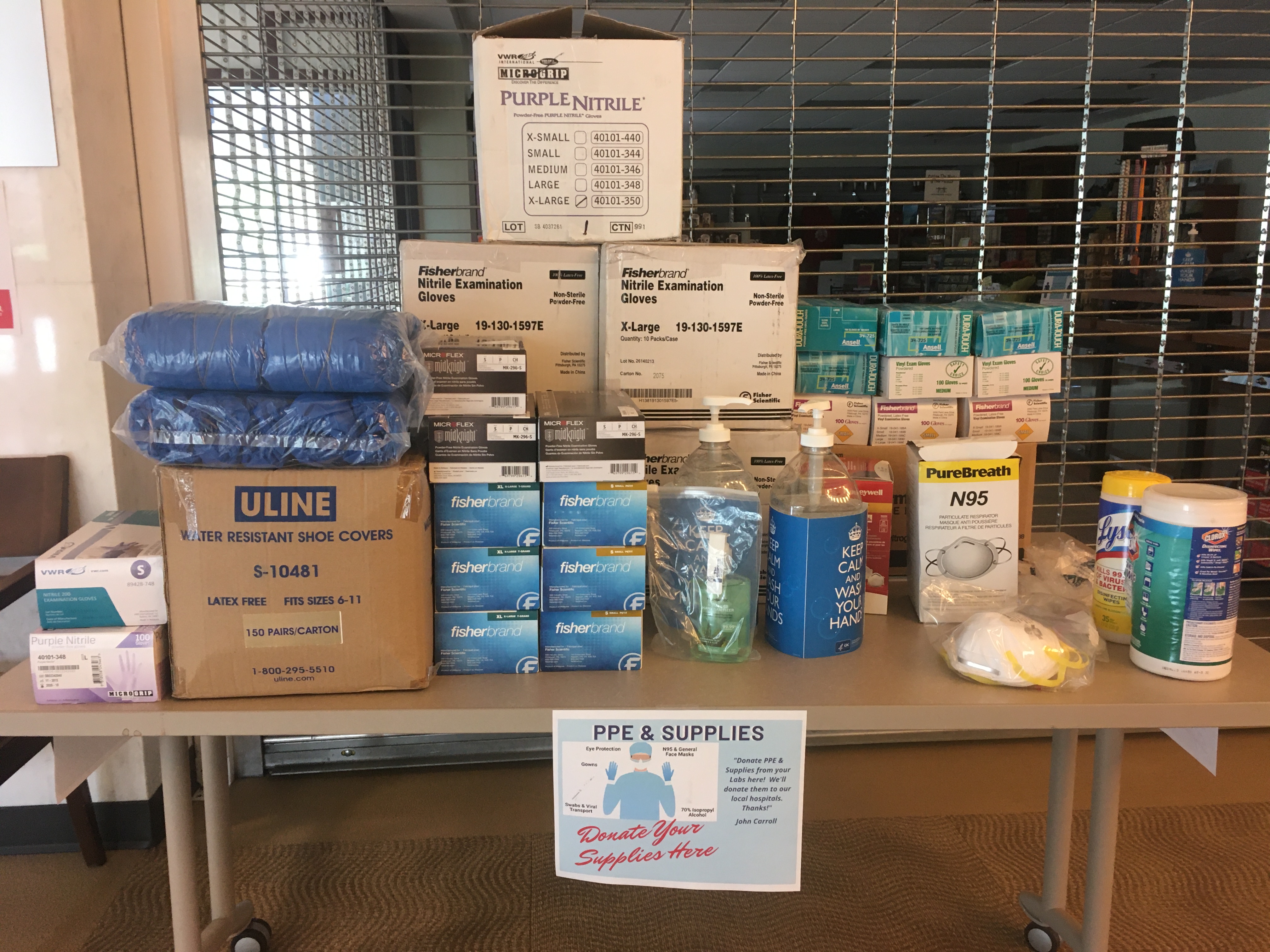
Soon after the University of Nebraska-Lincoln cancelled classes and announced a transition to remote learning in an effort to reduce the spread of COVID-19 last month, School of Natural Resources limnologist Jessica Corman considered the supplies in her lab space that would largely go unused the rest of the semester. There was some overlap in personal protective equipment (PPE) that would not be used the rest of the spring semester -- two boxes of size small non-latex gloves and 18 N95 protective masks -- and what hospitals around the country suddenly had on short supply. She wanted to donate hers.
Rather than drive to a Lincoln hospital and drop off a handful of PPE supplies, Corman sent out notice to SNR faculty and staff, as well as other labs outside of the department, to see about pooling resources that were needed by medical professionals combating coronavirus. The response was significant.
On March 31, Corman drove a lab truck from SNR to UNL’s Biological Systems Engineering Department, and then on to the Earth and Atmospheric Science and Agronomy and Horticulture departments, picking up supplies at each stop. Added to the donations that had piled up on a table in the Hardin Hall lobby, they filled the truck. Then she drove everything to Bryan Health, where staff piled the UNL donations into a set of wheelchairs.
All told, SNR, AgHort, EAS and BSE donated 165 boxes of gloves (16,500 total), 250 pairs of shoe covers, 11 neoprene aprons, about four liters of hand sanitizer, two tubes of disinfecting wipes, 250 surgical masks, 42 N95 masks -- so widely unavailable that Corman described them as “golden” in a thank you note to those who donated -- and about 30 Tyvek hazmat suits.
Corman’s parents live in New York state, where over 80,000 residents have already tested positive for COVID-19, straining medical resources throughout the state and region. An effort to reduce demand, even slightly, for needed products in a Nebraska hospital means that supplies could reach hospitals there just a little quicker, Corman said.
“That means so much to me,” she said. “I was really impressed at people's generosity, recognizing that we don't need the stuff right now -- the hospitals need the stuff right now.”
Cory Matteson, SNR Communications